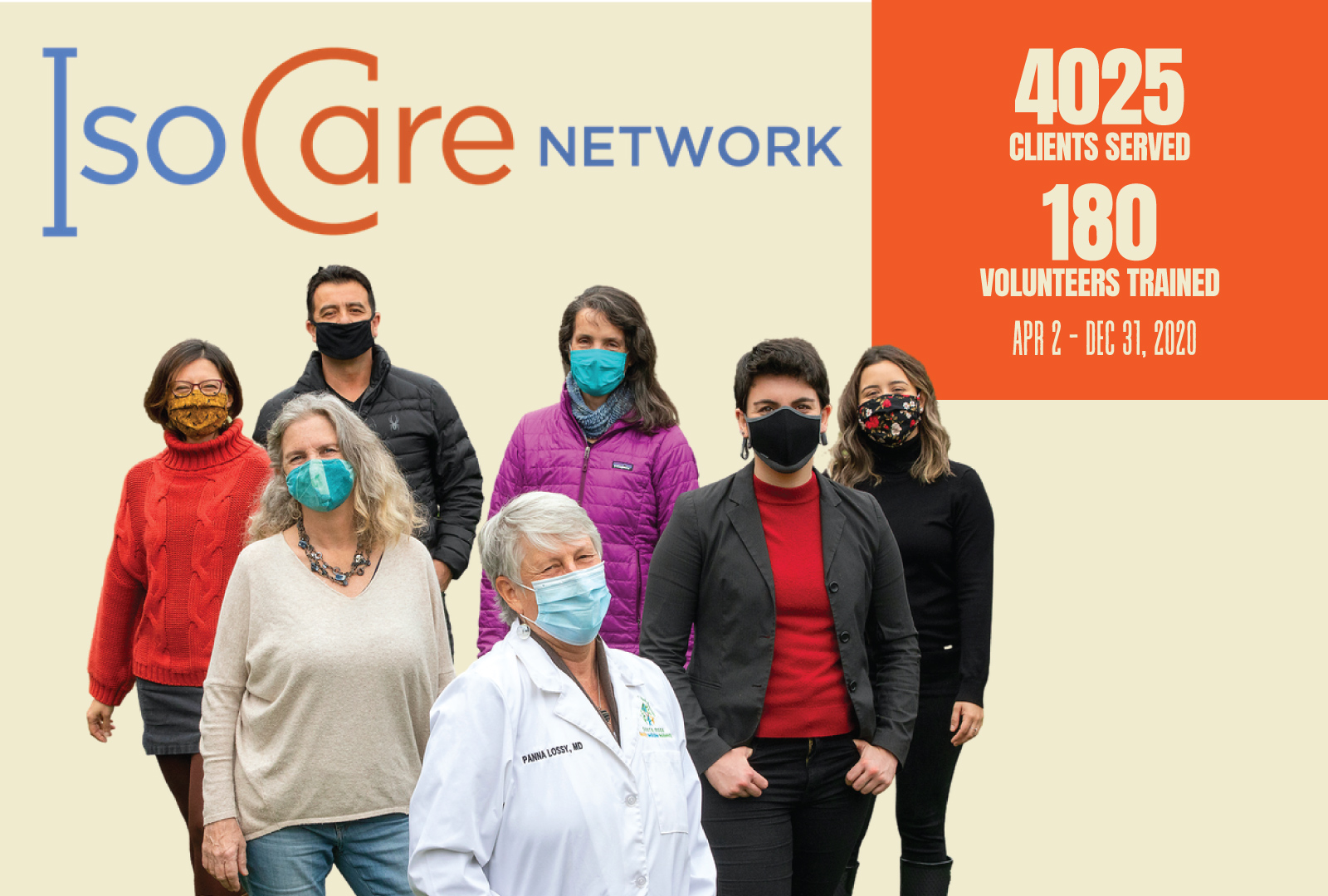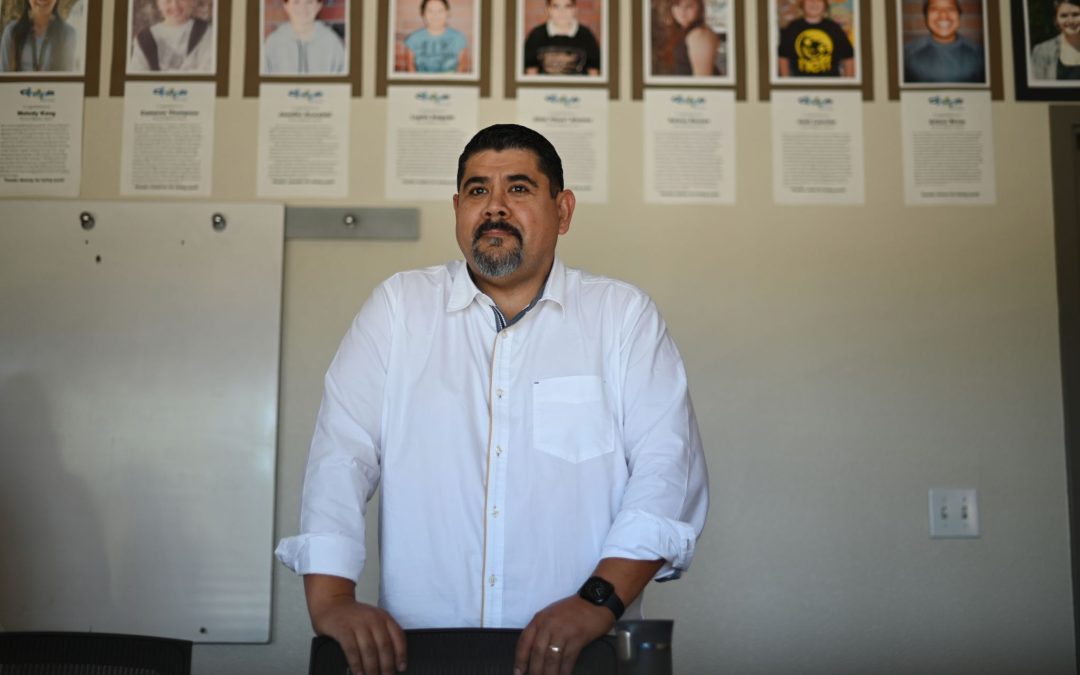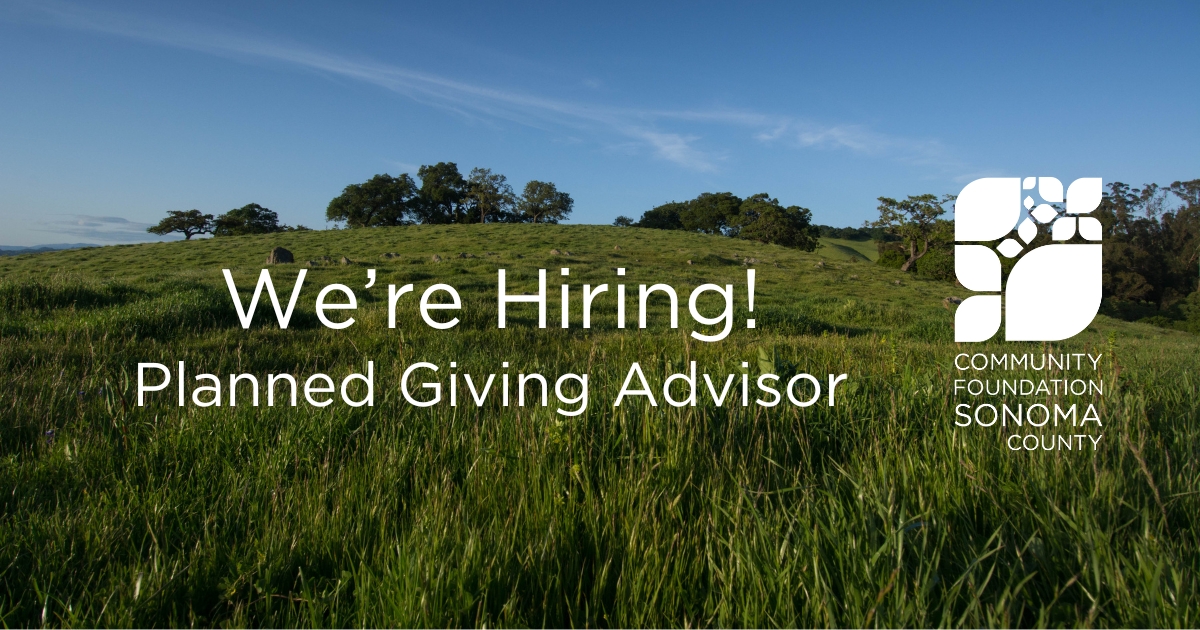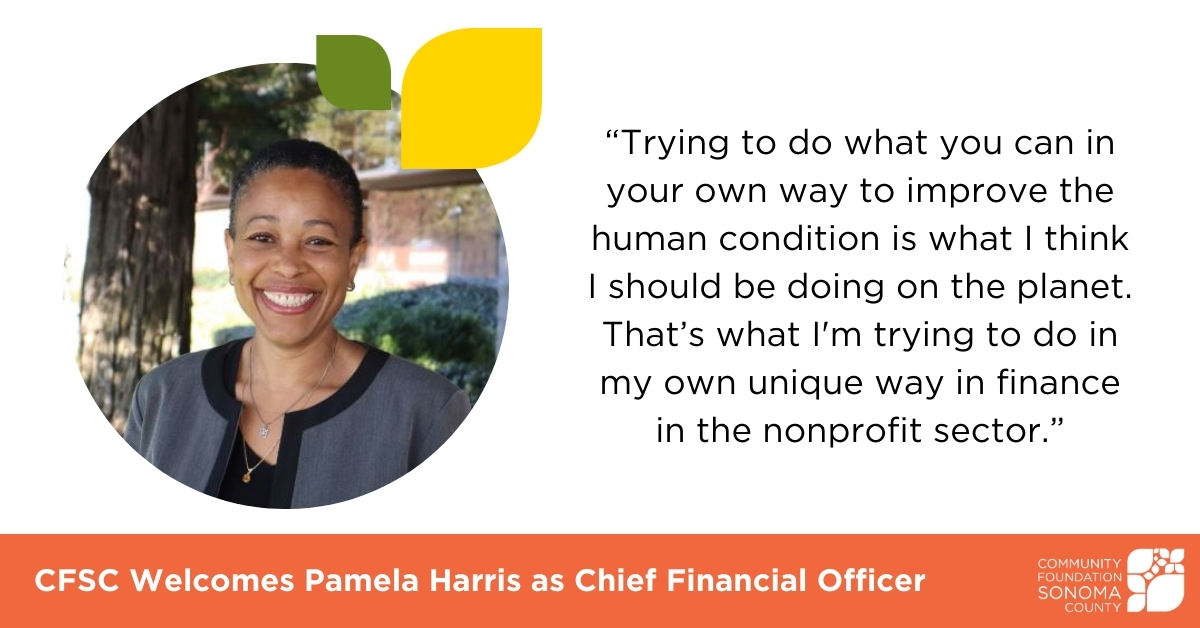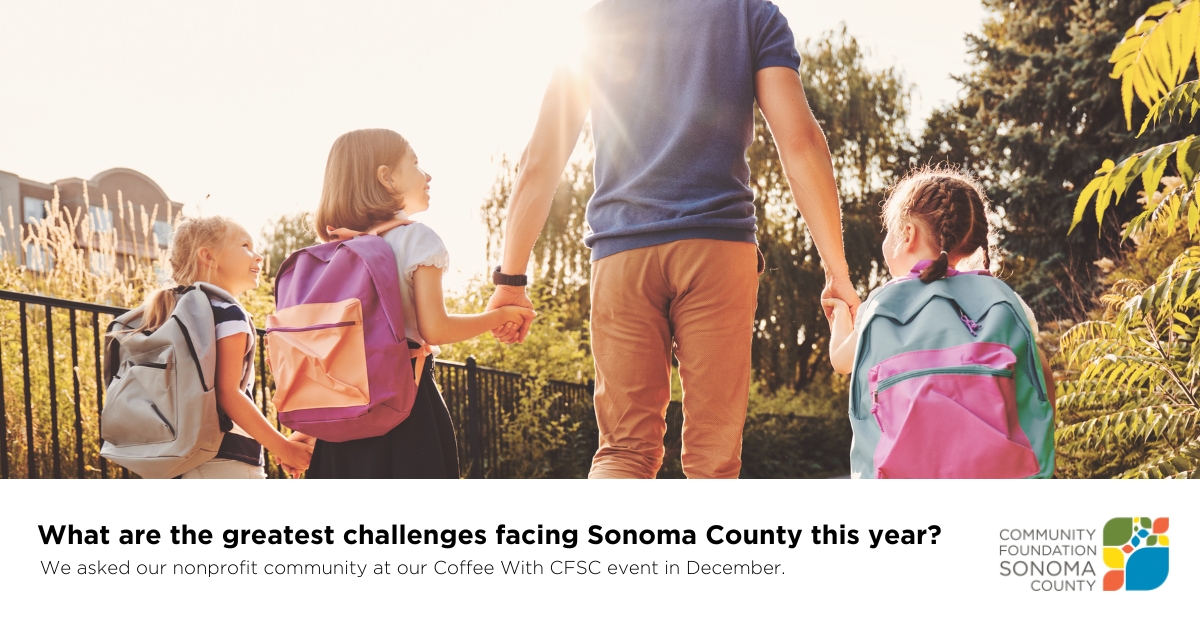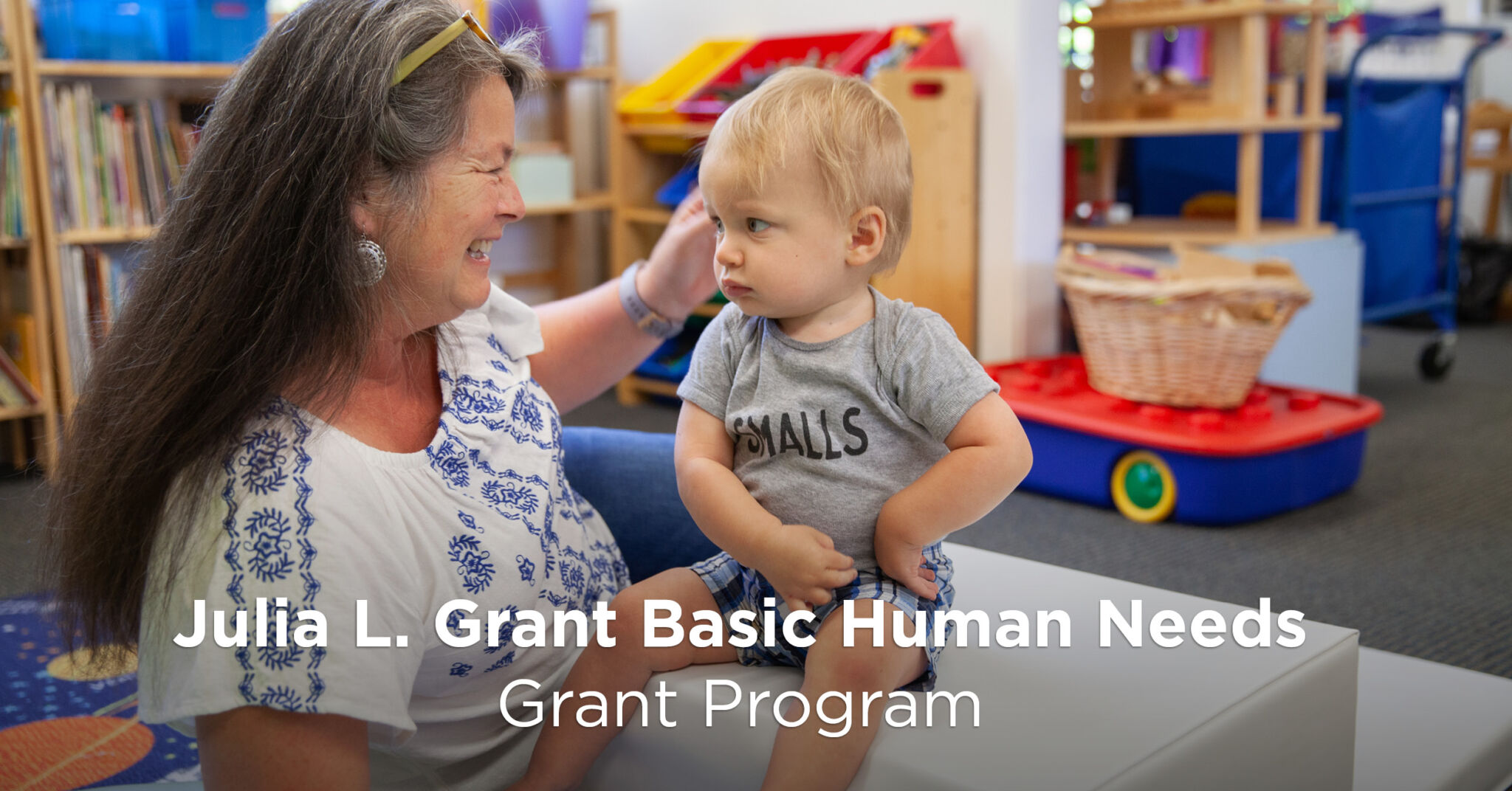When Elece Hempel, the Executive Director of Petaluma People Services Center (PPSC), first realized the pandemic would impact the organization’s services, she met with seniors who frequent their Senior Café. Although she assured them meals would still be available (through pick-up instead of in the café setting), many expressed concerns about the loneliness that isolation would bring. To foster connections and deter that loneliness, Hempel matched seniors with volunteers and created a daily program called “You’re Not Alone” to ensure each participant would have someone to talk to each day. Now, over a thousand Sonoma County seniors receive daily phone calls to stay connected.
Around the same time, Dr. Panna Lossy was conducting COVID testing at the brand-new Santa Rosa Community Health drive-through testing center.
“I was working the testing center, and there I was in full PPE in a line of cars, and I was listening to people’s hearts and lungs, and collecting the specimen and then giving them a handout and telling them they needed to go home and isolate,” says Lossy. “And they would say things like, ‘Oh yeah, doc; we got this. We’ve been isolating for months now. We’re just going to stop at Costco, pick up some stuff, and we’ll be home. Don’t worry about us.’”
Time and again, Dr. Lossy heard people at the testing site misunderstand what isolating actually means. She decided to solicit volunteers to offer telephone support to ensure people really knew what was being asked of them when they were told to isolate themselves while waiting for test results or while recovering from the virus.
“We realized we needed a sponsoring entity, and that happened to be right at the same time that Petaluma People Services got some press in the Press Democrat for their Not Alone Project, and so we reached out to Elece [Hempel],” she says.
“Panna had this good idea and needed a place for it. So I said, ‘Yeah, how long is the pandemic going to last? Two months?’” says Hempel of their sponsorship of the IsoCare project. “’And how many people could it be?’ I even said, ‘Look, we’ll provide additional support.’”
The additional support consisted of helping program participants with errands, like buying and delivering much-needed items like diapers and other supplies that people in isolation can’t go out and pick up on their own. Hempel says that Petaluma People Services set up a donation page on their website to help pay for these supplies and PPS volunteers purchased the supplies with the donated funds.
The first IsoCare phone support call was made on April 2, and until September, the program—including phone calls, back-office support, coordination, and more—was entirely volunteer-run. Looking back at 2020, IsoCare trained over 180 volunteers and supported 4,025 people through isolation in quarantine. There are two phone banks; one is in English and one in Spanish. Dr. Lossy says that roughly half of referrals are from monolingual Spanish-speaking clients, one of the local populations hit hardest by positive COVID cases.
“We know that the key infectious period is the two days before the onset of symptoms and the five days after the onset of symptoms,” she says. “So if we wait until people test positive before we start talking to them about isolation and quarantine, we miss the key moment to try to slow transmission in the household and also outside the household.”
Dr. Lossy says that early intervention and isolation is crucial to stopping the spread of COVID-19 and that quarantine is essential even while simply waiting for test results. In helping people to isolate, IsoCare takes referrals from community health centers throughout Sonoma County and hospitals treating uninsured or Medi-Cal patients. IsoCare’s focus is on those who may have barriers to treatment or lack information about the virus’s spread, and they call clinets within 24 hours of their referral from a test site, providing rapid intervention.
Dr. Lossy says that the most crucial need their volunteers are hearing about is financial support.
“If someone needs to isolate and their whole family has to quarantine, they need money because staying home means they’re not going to make their rent. [Clients] are worried they’re not going to be able to pay their bills,” she says. “That has been the number one thing that people truly need.”
She points out that for documented residents working in Sonoma County, most are eligible for paid sick leave or other emergency funds. But if someone is undocumented and they have a positive test, those benefits are not always available. So IsoCare has partnered with Undocufund to get financial support to our undocumented community members.
“Everybody is hurting, and I’m not trying to downplay that, but I feel like it’s really a huge social justice issue,” says Dr. Lossy. “Because not only are low-income people and black and brown people bearing the brunt of being the essential workers and getting more COVID, they have less financial support when they’re impacted by it. It’s heartbreaking, honestly.”
“We hear from the IsoCare clients that when somebody says ‘you have to isolate’, that’s like a death sentence to a lot of people. I mean, that’s scary. They don’t have a support system in place. They’re the only breadwinners. They’re the ones who go grocery shopping. They’ve got two babies at home,” adds Hempel. “IsoCare just puts their mind at ease. They get this call from a trained community care health manager. And they give them the medical 411, and then they pass on that person to us. And then the social services kick in, and we make sure that they get what they need.”
In addition to supporting IsoCare, Petaluma People Services is busy adapting and expanding its pre-existing programs. Through their senior program, Hempel has come up with a “Question of the Day” project to keep seniors engaged with the community while in isolation. They’ve also ramped up their meal program, both through their Senior Café and through a partnership with Council on Aging’s Meals on Wheels project. Before the pandemic, Hempel says that these programs served about 2,000 meals a month. Since shelter in place, this number has climbed to nearly 10,000 meals a month.
Additionally, PPS’s iRIDE program has evolved from simply driving seniors to medical or other appointments to delivering meals and prescription medications to seniors.
Among their many other programs, including an adult day program for seniors with dementia and a therapy program for foster children, all have transitioned online and continue to serve the community. Their youth employment program fielded over 600 calls seeking support with navigating the EDD process. All of the callers were able to get the help they needed.
And, of course, Petaluma People Services Center was able to help evacuees during the Glass Fire, as they had during both the October 2017 fires and more recently with the Kincade and Walbridge Fires.
Last September, financial support—including a grant from Community Foundation Sonoma County—has eased pressure on volunteers and has helped hire staff and cover the salaries for the back office support. IsoCare also hired two bilingual-bicultural community health workers to make phone calls.
“It helped to take the pressure off our Spanish-speaking volunteers,” says Dr. Lossy. “Because it was just too much.”
“I really appreciate all that the Community Foundation has done to support all this work,” adds Dr. Lossy. “And I know this might sound weird, but I think living through so many fires together has brought us together as a community.”
Hempel points that despite the longstanding pandemic, compounded by recent fires, there is a bit of a silver lining, especially when it comes to the community’s generosity and numerous volunteers.
“People have just been so giving. And they don’t know what tomorrow is going to bring. We don’t know how long this is going to last. We don’t know if jobs are going to be there for them. We don’t know what’s out there,” she says. “So it’s been very encouraging to see how much people are taking care of each other.”
Want more information about IsoCare’s services? Click here to read the IsoCare 2020 Impact Report.
Story by Dani Burlison

